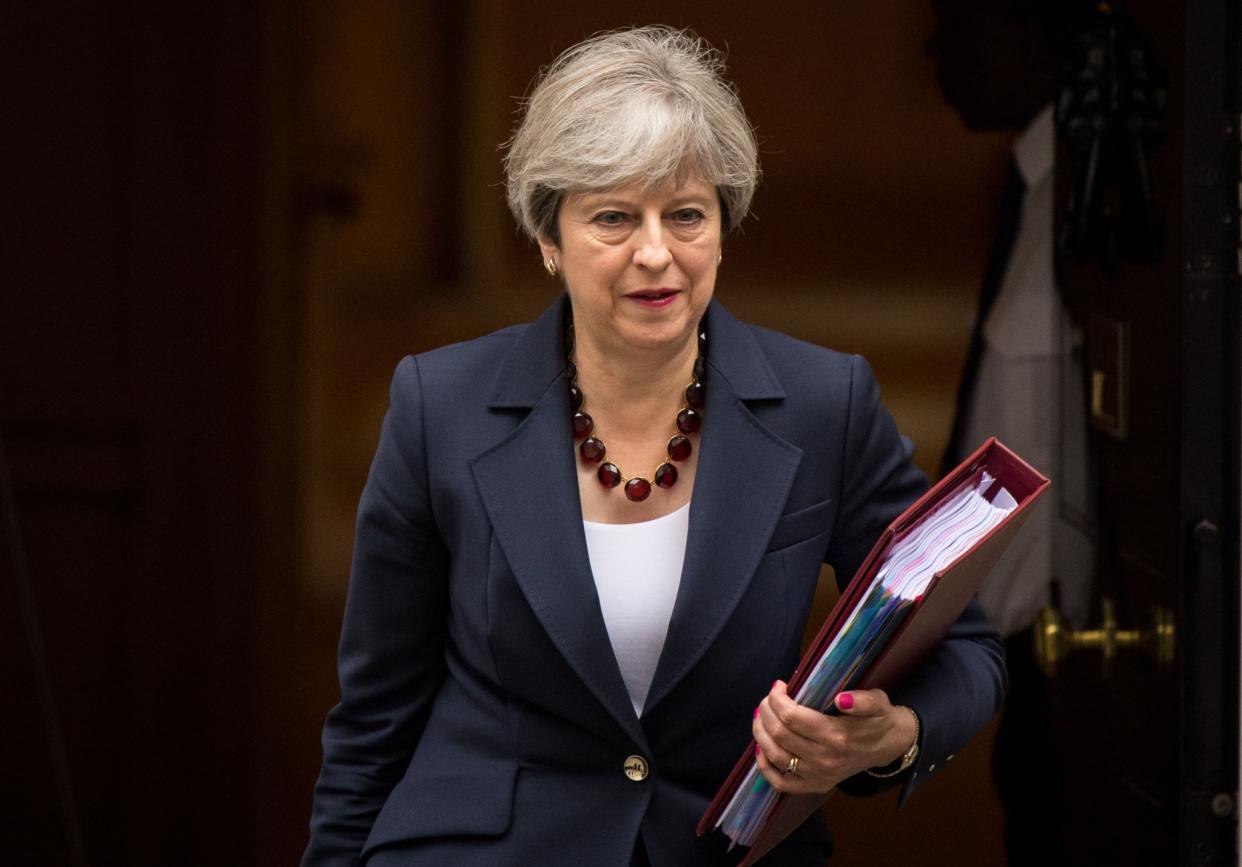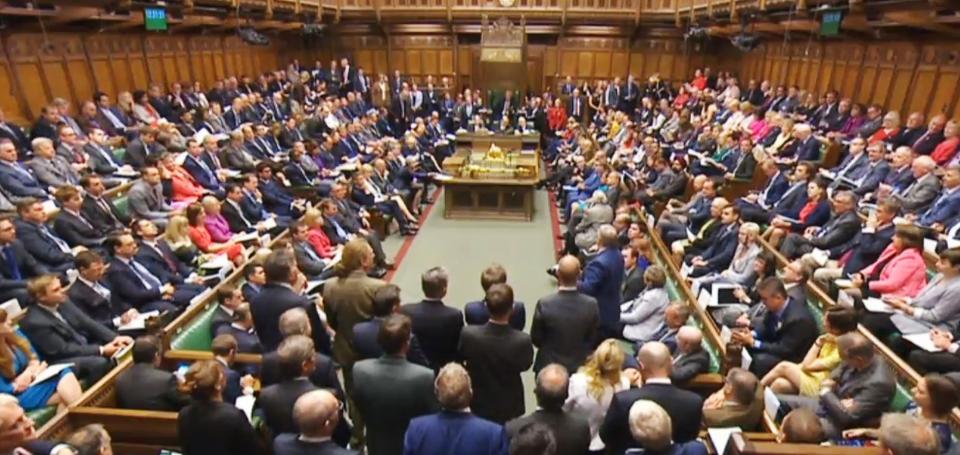Theresa May's Queen's Speech clears the Commons by slim margin

Theresa May has cleared her first major Commons hurdle of the new Parliament as MPs backed the Government’s legislative programme for next two years.
The House voted by 323 to 309 to approve the Queen’s Speech with the Democratic Unionists supporting the Government in line with their deal struck with the Conservatives earlier this week.
However it only passed after ministers rushed out an announcement of funding for women in Northern Ireland to have abortions in England on the NHS to head off a Tory revolt which threatened to derail the whole process.
The senior Conservative MP Sir Peter Bottomley added his name to an amendment by Labour backbencher Stella Creasy calling on the Government to provide funding so women in Northern Ireland, where there are much tighter controls, could have a termination without paying.
If the amendment had passed it would have meant the staunchly anti-abortion DUP would have been asked to support a Queen’s Speech which explicitly provides for women from Northern Ireland to have free abortions.

Rather than risk more Tory MPs joining Sir Peter in supporting the amendment, raising the prospect of a Government defeat, Chancellor Philip Hammond announced ministers had found the cash needed.
“I know this is a matter of great importance to members on both sides of the House and an issue which I know my colleagues on the Treasury bench have been looking for a solution to,” he said.
The concession was welcomed by Ms Creasy, who withdrew her amendment without putting it to a vote, on the basis of the Government’s assurances.
“Let us send a message to women everywhere that in this Parliament, their voices will be heard and their rights upheld,” she told MPs.
Downing Street said the estimated cost was around £1 million a year, but added: “We are committed to funding in excess of this if required to meet the commitment.”
The Government’s decision to concede so rapidly underlined the fragility of Mrs May’s position in the Commons where she is now dependent on the votes of the 10 DUP MPs, having lost her majority in the General Election.
The arrangement with the DUP, which will see £1 billion channelled to Northern Ireland, was bitterly denounced in the Commons chamber by Tory backbencher Heidi Allen who said they should have been prepared to govern as a minority administration.
“I want an honest, transparent, collaborative, respectful and positive kind of politics so I can barely put into words my anger at the deal my party has done with the DUP. We didn’t need to do it,” she said.
“I must put on record my distaste for the use of public funds to garner political control.
“We should have run with a minority government and showed the country what mature, progressive politics looks like.”

There were problems also for Jeremy Corbyn with 49 Labour MPs defying the party leadership to back an amendment by former shadow business secretary Chuka Umunna on Brexit.
The rebels included six shadow ministers, Ruth Cadbury, Rupa Huq, Andy Slaughter, Gareth Thomas, Catherine West and Daniel Zeichner.
The amendment called for Britain to remain in the European single party and customs union, in defiance of official Labour policy.
It was defeated 322 votes to 101 with most Labour MPs following the leadership in abstaining.

 Yahoo News
Yahoo News 
